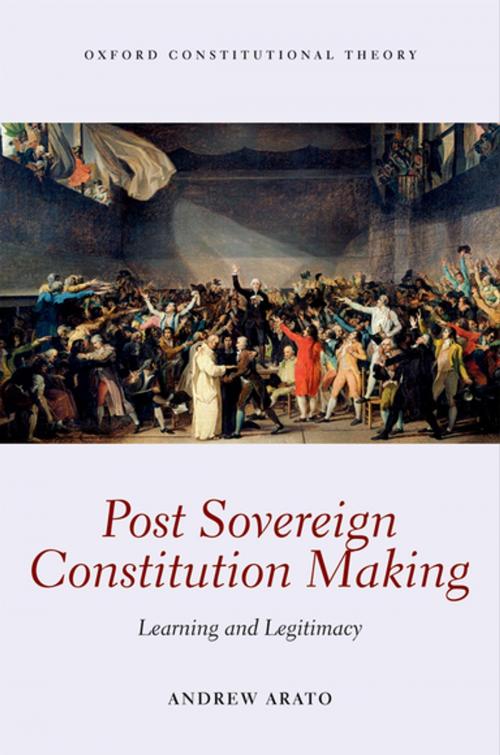Post Sovereign Constitution Making
Learning and Legitimacy
Nonfiction, Reference & Language, Law, Constitutional, Social & Cultural Studies, Political Science| Author: | Andrew Arato | ISBN: | 9780191074035 |
| Publisher: | OUP Oxford | Publication: | March 10, 2016 |
| Imprint: | OUP Oxford | Language: | English |
| Author: | Andrew Arato |
| ISBN: | 9780191074035 |
| Publisher: | OUP Oxford |
| Publication: | March 10, 2016 |
| Imprint: | OUP Oxford |
| Language: | English |
Constitutional politics has become a major terrain of contemporary struggles. Contestation around designing, replacing, revising, and dramatically re-interpreting constitutions is proliferating worldwide. Starting with Southern Europe in post-Franco Spain, then in the ex-Communist countries in Central Europe, post-apartheid South Africa, and now in the Arab world, constitution making has become a project not only of radical political movements, but of liberals and conservatives as well. Wherever new states or new regimes will emerge in the future, whether through negotiations, revolutionary process, federation, secession, or partition, the making of new constitutions will be a key item on the political agenda. Combining historical comparison, constitutional theory, and political analysis, this volume links together theory and comparative analysis in order to orient actors engaged in constitution making processes all over the world. The book examines two core phenomena: the development of a new, democratic paradigm of constitution making, and the resulting change in the normative discussions of constitutions, their creation, and the source of their legitimacy. After setting out a theoretical framework for understanding these developments, Andrew Arato examines recent constitutional politics in South Africa, Hungary, Turkey, and Latin America and discusses the political stakes in constitution-making. The book concludes by offering a systematic critique of the alternative to the new paradigm, populism and populist constituent politics.
Constitutional politics has become a major terrain of contemporary struggles. Contestation around designing, replacing, revising, and dramatically re-interpreting constitutions is proliferating worldwide. Starting with Southern Europe in post-Franco Spain, then in the ex-Communist countries in Central Europe, post-apartheid South Africa, and now in the Arab world, constitution making has become a project not only of radical political movements, but of liberals and conservatives as well. Wherever new states or new regimes will emerge in the future, whether through negotiations, revolutionary process, federation, secession, or partition, the making of new constitutions will be a key item on the political agenda. Combining historical comparison, constitutional theory, and political analysis, this volume links together theory and comparative analysis in order to orient actors engaged in constitution making processes all over the world. The book examines two core phenomena: the development of a new, democratic paradigm of constitution making, and the resulting change in the normative discussions of constitutions, their creation, and the source of their legitimacy. After setting out a theoretical framework for understanding these developments, Andrew Arato examines recent constitutional politics in South Africa, Hungary, Turkey, and Latin America and discusses the political stakes in constitution-making. The book concludes by offering a systematic critique of the alternative to the new paradigm, populism and populist constituent politics.















